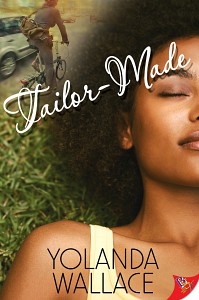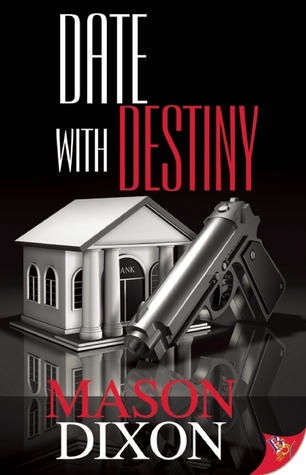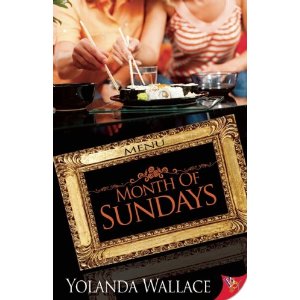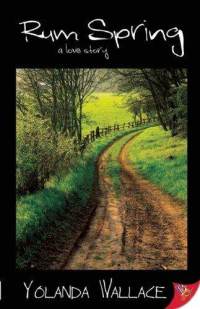I went looking for one of Wallace’s newer books at the library and, to my delight, stumbled on a few of her older books, which is always a nice surprise when you find a new author you like. Instant book list! Tailor-Made is an opposites attract, forbidden love romance with a lot of interesting dialogue on gender and bias, which while sometimes clumsily explored, shows good intention.
Grace Henderson is a tailor working for her father, and set to take over the family business when he retires. Grace is a daddy’s girl, and still lives at home with her family, including her two sisters. It’s a full house with not a lot of privacy. Grace is out to her family, and while they’re church-going folks who care about their standing in the community, and who lean on the conservative side, they’re supportive in a conditional sort of way. As long as Grace is dating “respectable,” feminine women, they really don’t care about her sexuality.
Enter Dakota Lane, bad boi lesbian and famous men’s clothing model. She’s butch, white, and always in the tabloids with a new woman. When Dakota and Grace have instant chemistry during a suit fitting, they try and fail to stay away from each other. Grace struggles with her undeniable attraction to a masculine woman and repeatedly tells herself Dakota is “not her type,” as her childhood posters of Janet Jackson prove.
Gender presentation is a really important theme in the book, though there are some awkward moments during the exploration. One of these speed bump moments is courtesy of Dad, who is maybe a little out of touch in that boomer sort of way. There’s a moment near the beginning of the book that gave me pause, with Dad describing a new, transgender client as “a woman who used to be a man,” and it took a few more pages to confirm this was Dad’s voice and a tool to introduce the topic of gender identity, rather than a direct reflection of the author. A few more pages clears this up nicely, but I did tilt my head and brace for the worst. Grace realizes she has something to learn about the transgender community, pronoun use, and her unconscious bias toward masc of center women. This leads to some exploration of what it means to be visibly queer vs passing, and a well-placed, very real and uncomfortable scene where Dakota goes through an airport scanner and is misgendered.
There are some issues and tension with one of Grace’s sisters that largely remain unresolved, not a huge deal as far as loose ends go as the sister wasn’t a main part of the plot, but she did introduce a healthy amount of negativity and resentment toward Grace. I think one of my larger disappointments came with how Grace handled her budding relationship with Dakota, which was filled with miscommunication. After a pep talk from her other, more supportive sister about not letting your parents dictate your decisions and life, she still didn’t really make the decision to embark on her independence both in terms of her career and romantic relationship without daddy’s approval. That irked me a little bit, even though things worked out for her—of course, it is a romance—I was really rooting for her to reach a point where she didn’t need her father’s acceptance to move forward.
There could have also been a touch more groveling at the end after Grace and Dakota part ways in our third act conflict. Poor Dakota was way more forgiving than warranted considering how things go down (though that is a frequent complaint of mine in a lot of recent contemporary romances). Girl, make her work for it! Wallace’s Tailor-Made may not be the bespoke suit of romance novels, but it’s certainly a fun read to add to your list.






